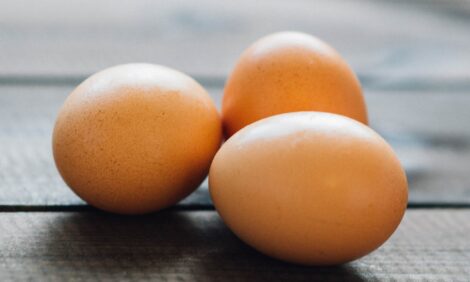



New Hen Welfare Code Gets Mixed Reception
NEW ZEALAND - The government says that the new welfare code for layers is expected to push up egg prices, and the code has not been welcomed by welfare organisations.The Ministry of Agriculture and Forestry (MAF) has today released the proposed new welfare code to seek public submissions, and said the annual cost of switching from cage production to 'colony housing', barns or free-range systems would be about $15 million.
"Initially, the cost will be borne by producers. In the longer-term, however, price is assumed to increase, passing the economic cost of the new housing system on to consumers," MAF told New Zealand Herald.
It has yet to set a date for requiring all layer hens to be given sufficient space to stand erect and flap their wings, lay their eggs in a nesting area, perch, and show foraging and dust-bathing behaviour.
This could include housing in enriched colony systems, barns (hens are loose inside a shed) and free range housing (hens have access to the outdoors).
National Animal Welfare Advisory Committee (NAWAC) chairman, Dr John Hellström, said that despite the committee proposing a phase out of cages, it would not make a final decision on timing until after public consultation, which closes on 25 March.
NAWAC said farmers could not make the change to colony systems overnight and would need time to plan changes to their systems, secure resource consent and financing, source new equipment, and train staff, reports New Zealand Herald.
TVNZ has reported that animal welfare lobbyists are outraged at the hen cage proposal.
The Society for the Prevention of Cruelty to Animals (SPCA) and the Greens are outraged a new welfare code will still allow layer hens to be put in cages.
"There is no point in pretending that an enriched cage, which gives hens the equivalent of an extra credit card of space, is acceptable," said Green Party animal welfare spokesperson, Sue Kedgley.
"Enriched cages are condemned internationally on the grounds of animal cruelty and it is ludicrous that NAWAC is proposing replacing one cruel cage system with another one.
Ms Kedgely says hens locked in cages suffer foot damage, skin damage, leg weakness and osteoporosis from having no exercise all in their lives.
"Most of all hens suffer from being locked in a cage where they cannot exercise, get away from other hens, or express their natural behaviours."
SPCA chief executive, Robyn Kippenberger, added that the new cages are unacceptable, telling TVNZ: "The proposals for so called 'enriched' cages puts us 20 years behind our EU counterparts and it brings a whole new level of 'economic' dispensations.
"Once these units have been installed, industry will ask for a further 20 years to phase them out."











